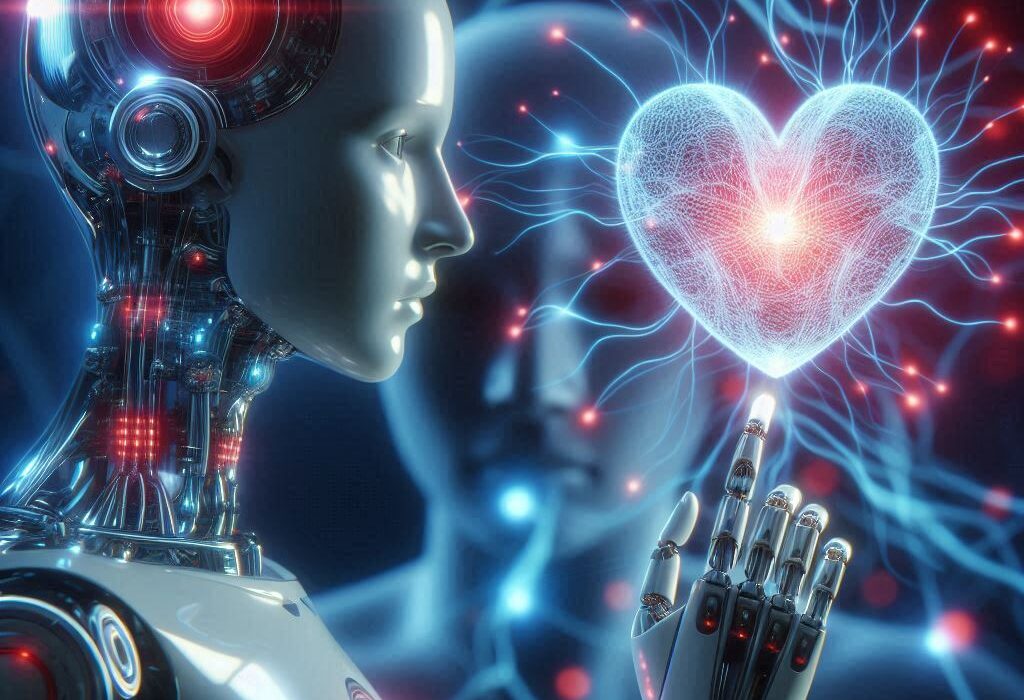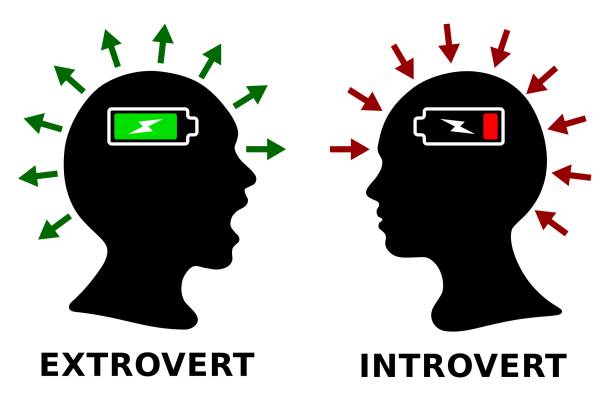Depression is one of the most complex and misunderstood mental health conditions in the world. It affects hundreds of millions of people across every culture, age group, and background, shaping the way individuals think, feel, and live. More than a passing sadness or a bad day, depression is a serious disorder that can profoundly disrupt daily functioning, relationships, and physical health. It is not a sign of weakness or a flaw in character—it is a genuine medical condition rooted in intricate biological, psychological, and social processes.
Modern science continues to explore the mysteries of depression, revealing that it is not caused by a single factor but by a dynamic interplay of brain chemistry, genetics, stress, and environmental influences. Understanding depression requires us to move beyond stereotypes and stigma to see it for what it truly is: a multifaceted condition that demands empathy, awareness, and evidence-based treatment.
Understanding the Nature of Depression
Depression, clinically known as major depressive disorder (MDD), is characterized by a persistent feeling of sadness, emptiness, or hopelessness that lasts for weeks or months and interferes with a person’s ability to function. Unlike temporary sadness or grief, which are natural emotional responses to life’s challenges, depression does not easily fade with time or positive experiences. It often persists despite external improvements, making everyday activities feel overwhelming or meaningless.
Depression exists on a spectrum. Some people experience mild symptoms that cause moderate distress, while others face severe depression that leads to complete withdrawal from life, loss of motivation, and in extreme cases, suicidal thoughts. Scientists recognize that depression is not one single disorder but a cluster of related conditions that may have different biological causes and clinical presentations.
The Diagnostic and Statistical Manual of Mental Disorders (DSM-5) defines major depressive disorder as having at least five of the following symptoms for two weeks or longer: persistent sadness, loss of interest in pleasurable activities, changes in appetite or weight, sleep disturbances, fatigue, difficulty concentrating, feelings of worthlessness or guilt, psychomotor changes, and recurrent thoughts of death or suicide.
While diagnostic criteria help clinicians identify depression, the lived experience of it is deeply personal. For some, depression feels like emotional numbness—a sense of emptiness and disconnection. For others, it manifests as intense sadness, irritability, or self-criticism. What unites these experiences is the profound impact depression has on one’s sense of self and ability to engage with the world.
The Science Behind Depression: What Happens in the Brain
For decades, scientists have sought to uncover the biological mechanisms of depression. While early theories focused mainly on chemical imbalances, modern neuroscience paints a more complex picture. Depression arises from interactions between neurotransmitters, hormones, neural circuits, and inflammatory processes, as well as from the influence of genetics and environmental stress.
Neurotransmitters are chemical messengers that regulate communication between brain cells. Three key neurotransmitters—serotonin, dopamine, and norepinephrine—play critical roles in mood regulation, motivation, and emotional processing. Low levels or disrupted signaling of these chemicals have been linked to depressive symptoms such as anhedonia (loss of pleasure), fatigue, and sadness. However, depression cannot be reduced to a mere chemical imbalance; it involves the entire neural network of emotion regulation.
Brain imaging studies have identified structural and functional changes in several brain regions among individuals with depression. The prefrontal cortex, which is responsible for decision-making and emotional control, often shows decreased activity, while the amygdala, associated with emotional responses and fear, tends to be overactive. The hippocampus, essential for memory and stress regulation, may shrink due to chronic exposure to stress hormones like cortisol. These changes create a feedback loop that reinforces negative thinking and emotional dysregulation.
Inflammation also appears to play a role. Research indicates that people with depression often have elevated levels of inflammatory markers such as cytokines in their blood. This has led to the emerging theory that depression may be partly an inflammatory disease, linking psychological stress to immune system dysfunction. Chronic inflammation can affect neurotransmitter metabolism, reduce neuroplasticity, and impair the brain’s ability to repair itself.
Furthermore, the hypothalamic-pituitary-adrenal (HPA) axis, the body’s central stress response system, often becomes overactivated in depression. Prolonged stress leads to excessive cortisol production, which can damage neurons in the hippocampus and interfere with the regulation of mood and stress. Over time, this biological stress cascade contributes to the persistence of depressive symptoms.
In short, depression is the result of a complex interaction between biology and environment—a malfunctioning network rather than a single chemical deficit. Understanding this complexity is crucial for developing more effective treatments that target not only symptoms but also underlying causes.
Genetics and Heritability of Depression
Depression often runs in families, suggesting a genetic component. Twin and adoption studies have shown that heritability accounts for approximately 30 to 40 percent of the risk for major depressive disorder. However, no single gene determines depression; rather, it arises from the combined effect of multiple genes interacting with environmental stressors.
Certain genetic variations can affect how individuals respond to stress or process neurotransmitters. For example, variations in the serotonin transporter gene (5-HTTLPR) have been associated with increased susceptibility to depression, particularly following adverse life events. Similarly, genes involved in dopamine signaling may influence reward sensitivity and motivation, factors that are often impaired in depression.
Epigenetics—the study of how environmental factors influence gene expression—has added a new dimension to our understanding of depression. Stressful experiences, trauma, and even parenting styles can alter how genes are expressed without changing the DNA sequence itself. These epigenetic modifications can increase vulnerability to depression and may even be passed down to future generations, suggesting that life experiences can leave biological imprints on our emotional health.
The Role of Environment and Life Experiences
While biology lays the groundwork for susceptibility, environmental and psychological factors often act as triggers. Life events such as the loss of a loved one, financial stress, relationship difficulties, or major transitions can precipitate depressive episodes, especially in individuals with underlying vulnerabilities. Chronic stress, social isolation, and a lack of support significantly increase the risk.
Childhood experiences are particularly influential. Exposure to neglect, abuse, or parental conflict during early development can shape the brain’s stress response systems, making individuals more reactive to stress later in life. Adverse childhood experiences can alter the function of the amygdala and prefrontal cortex and increase levels of cortisol, leading to long-term emotional consequences.
However, not everyone exposed to hardship develops depression. The difference often lies in resilience—the capacity to adapt and recover from adversity. Resilience is influenced by genetic factors, early attachment, coping strategies, and the presence of supportive relationships. Individuals who develop healthy coping mechanisms and maintain strong social bonds are less likely to experience chronic depression even when facing difficult circumstances.
Psychological Theories of Depression
Beyond biology, several psychological theories help explain the cognitive and emotional mechanisms underlying depression. Cognitive theories, pioneered by psychologist Aaron Beck, emphasize the role of negative thinking patterns. Beck proposed that people with depression tend to hold distorted beliefs about themselves, the world, and the future—a triad of pessimistic thoughts that reinforce depressive feelings. This cognitive bias causes individuals to interpret neutral or positive events in a negative light, perpetuating hopelessness.
Behavioral theories suggest that depression arises when individuals experience a reduction in positive reinforcement from their environment. When pleasurable or rewarding activities diminish, people withdraw and engage less, further reducing opportunities for positive feedback. This creates a downward spiral of inactivity and low mood.
Humanistic and existential perspectives view depression as a response to a loss of meaning or purpose. From this standpoint, depression can result from a deep conflict between one’s values, life circumstances, and sense of identity. Finding meaning and authenticity can therefore be a powerful path to recovery.
Interpersonal theories highlight the role of relationships. Poor communication, unresolved conflict, and social rejection can trigger or maintain depression. Humans are inherently social beings, and disconnection or loneliness can be deeply distressing to our emotional well-being. Interpersonal therapy (IPT), based on this theory, focuses on improving relationship skills and resolving interpersonal issues to alleviate depressive symptoms.
The Physical Symptoms and Impact of Depression
Depression affects the entire body, not just the mind. It can manifest as chronic fatigue, headaches, muscle tension, digestive issues, and changes in appetite or sleep. Many people with depression experience insomnia or hypersomnia, while others struggle with constant exhaustion despite adequate rest.
Cognitive symptoms such as difficulty concentrating, memory problems, and slowed thinking are also common. These impairments can make work, study, or even simple decision-making challenging, compounding feelings of inadequacy.
Physically, depression is associated with changes in the immune and endocrine systems. Chronic depression increases the risk of cardiovascular disease, diabetes, and other chronic illnesses due to prolonged inflammation and hormonal dysregulation. It can also weaken the immune system, making individuals more susceptible to infections.
The social impact is equally profound. Depression can strain relationships, reduce productivity, and lead to withdrawal from social or professional life. This isolation, in turn, worsens depressive symptoms, creating a self-perpetuating cycle.
The Global Burden of Depression
Depression is a leading cause of disability worldwide, affecting more than 300 million people according to the World Health Organization (WHO). It contributes significantly to the global burden of disease and is a major factor in suicide, which claims over 700,000 lives each year.
The economic cost of depression is staggering. Lost productivity, absenteeism, and healthcare expenses impose a heavy financial toll on individuals and societies alike. Despite its prevalence, depression often goes undiagnosed or untreated, particularly in low- and middle-income countries where mental health services are scarce.
Cultural factors also shape how depression is expressed and understood. In some societies, emotional distress is communicated through physical symptoms rather than words, leading to misdiagnosis. Stigma remains a major barrier to seeking help, as many still view depression as a personal failure rather than a legitimate health condition. Overcoming this stigma is essential for improving mental health outcomes globally.
Evidence-Based Treatments for Depression
The treatment of depression requires a multifaceted approach that addresses biological, psychological, and social dimensions. There is no one-size-fits-all cure, but a combination of therapies and lifestyle changes can significantly reduce symptoms and improve quality of life.
Antidepressant medications are often used to correct neurotransmitter imbalances and improve mood. Selective serotonin reuptake inhibitors (SSRIs), serotonin-norepinephrine reuptake inhibitors (SNRIs), and atypical antidepressants are among the most commonly prescribed. While medications can be highly effective, their benefits vary between individuals, and they may take several weeks to show full effects.
Psychotherapy, or talk therapy, is another cornerstone of treatment. Cognitive-behavioral therapy (CBT) helps individuals identify and challenge negative thought patterns, replacing them with more adaptive ways of thinking. Interpersonal therapy (IPT) focuses on improving communication and resolving relationship conflicts. Mindfulness-based cognitive therapy (MBCT) combines cognitive techniques with mindfulness meditation to prevent relapse in recurrent depression.
For treatment-resistant depression, alternative therapies such as electroconvulsive therapy (ECT), transcranial magnetic stimulation (TMS), and ketamine infusions have shown promise. These interventions target brain circuits directly and can produce rapid improvements in severe cases.
Lifestyle factors also play a crucial role. Regular physical exercise, a balanced diet, adequate sleep, and reduced alcohol or drug use can all enhance recovery. Social connection, engagement in meaningful activities, and stress management techniques like meditation or yoga can strengthen resilience and emotional well-being.
The Power of Prevention and Early Intervention
Early recognition and intervention can prevent depression from becoming chronic or severe. Schools, workplaces, and communities can play vital roles in promoting mental health literacy, reducing stigma, and encouraging people to seek help. Teaching emotional regulation skills and coping strategies from an early age helps build resilience.
Public health initiatives that integrate mental health into primary care, expand access to counseling, and address socioeconomic inequalities are essential for reducing the global burden of depression. Prevention is not just about treating illness—it is about nurturing environments that support psychological well-being and social connection.
Living Beyond Depression: Hope and Recovery
Recovery from depression is not simply the absence of symptoms; it is the restoration of vitality, purpose, and self-worth. Healing takes time, patience, and often a combination of medical, psychological, and social support. Many individuals recover fully and go on to lead fulfilling lives, while others manage their symptoms effectively through ongoing care.
Self-compassion and acceptance are key elements of recovery. Understanding that depression is not a personal failure but a medical condition can help alleviate shame and guilt. Support from family, friends, and community plays an irreplaceable role, reminding individuals that they are not alone.
Scientific research continues to advance, bringing hope for new treatments and deeper understanding. As we learn more about the brain, genetics, and environmental influences, the future of depression care becomes increasingly personalized—tailored to the unique biology and life story of each individual.
The Future of Depression Research
Emerging fields such as neuroplasticity, artificial intelligence, and precision psychiatry are transforming our understanding of depression. Studies on neurogenesis—the brain’s ability to grow new neurons—suggest that treatments stimulating brain plasticity may reverse the structural damage caused by chronic stress. Machine learning models are being developed to predict who might benefit most from specific therapies, paving the way for personalized mental health care.
Researchers are also exploring the role of the gut-brain axis, revealing that gut microbiota may influence mood and behavior through biochemical signaling. Nutritional psychiatry, an emerging discipline, investigates how diet and gut health affect mental well-being.
These innovations promise not only new treatments but also new ways of conceptualizing depression—as a systemic condition that involves the whole body, mind, and environment.
Conclusion
Depression is not a weakness, nor is it a mystery beyond understanding. It is a deeply human experience rooted in the biology of the brain, shaped by personal history, and influenced by the world around us. Recognizing its complexity helps us move away from blame and toward compassion, understanding, and effective care.
Science has made remarkable progress in uncovering the mechanisms of depression and developing treatments that restore hope and functionality. Yet, the most powerful antidote to depression remains connection—to oneself, to others, and to the world. Through knowledge, empathy, and evidence-based strategies, depression can be demystified, treated, and ultimately overcome.






